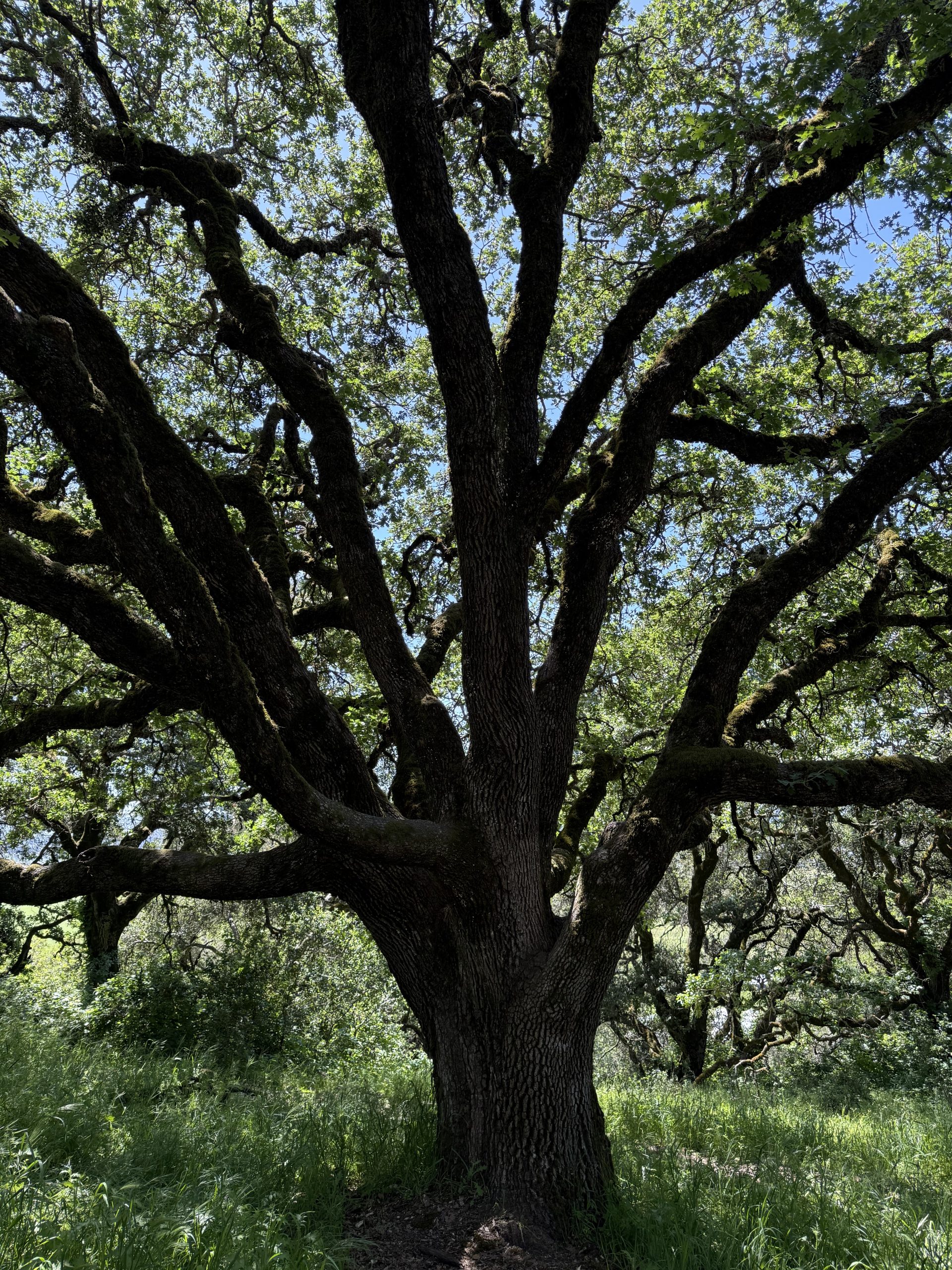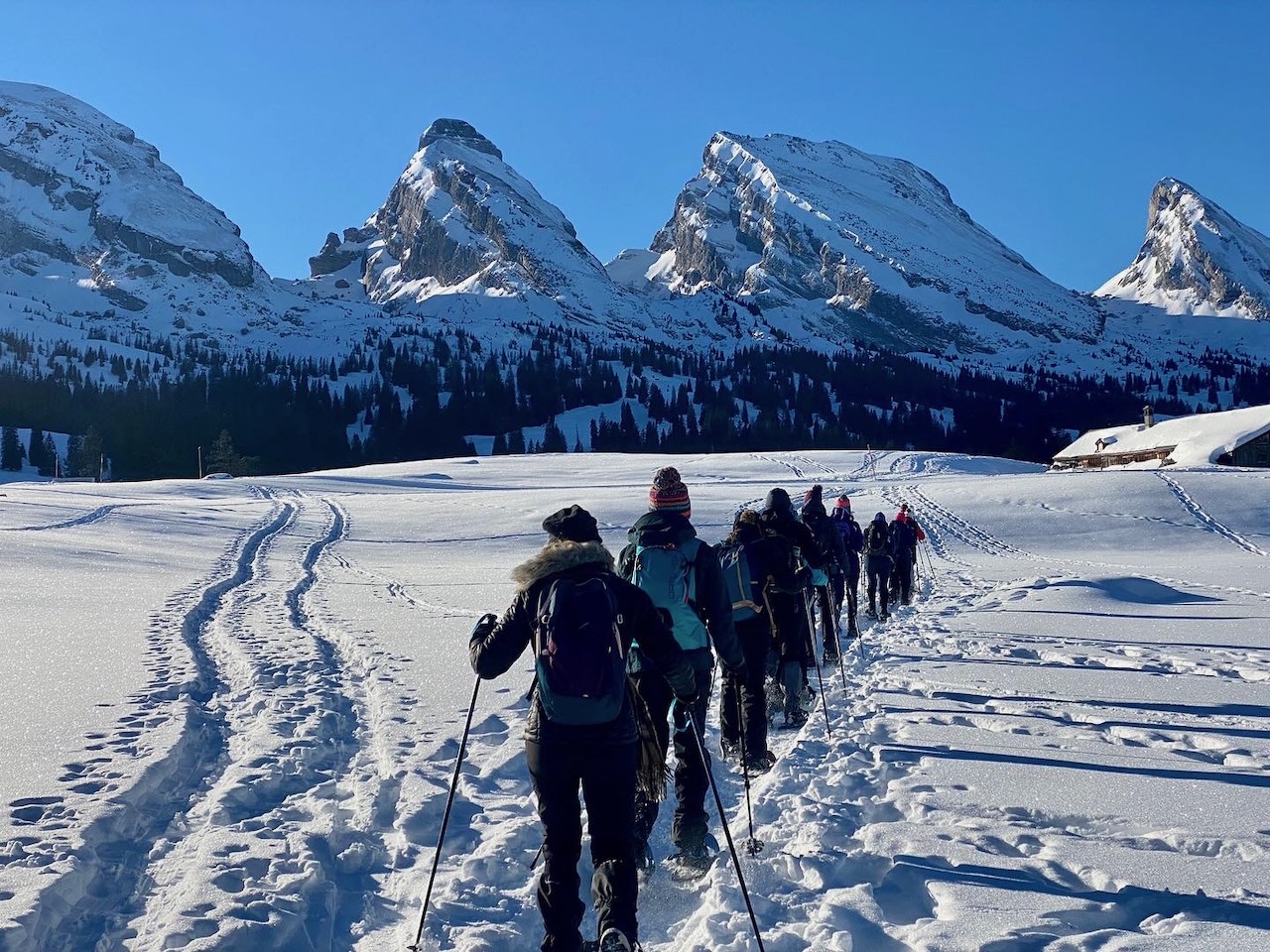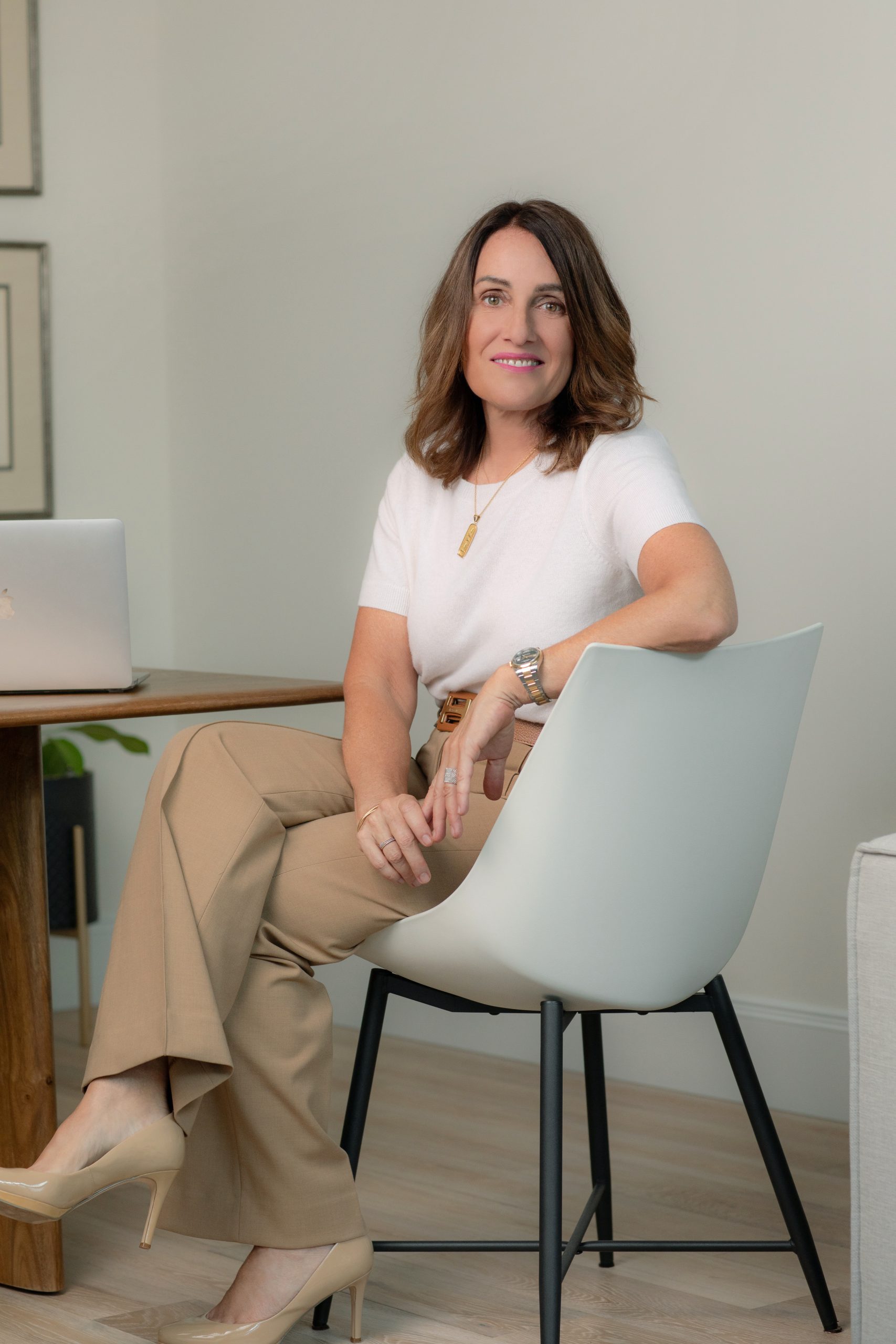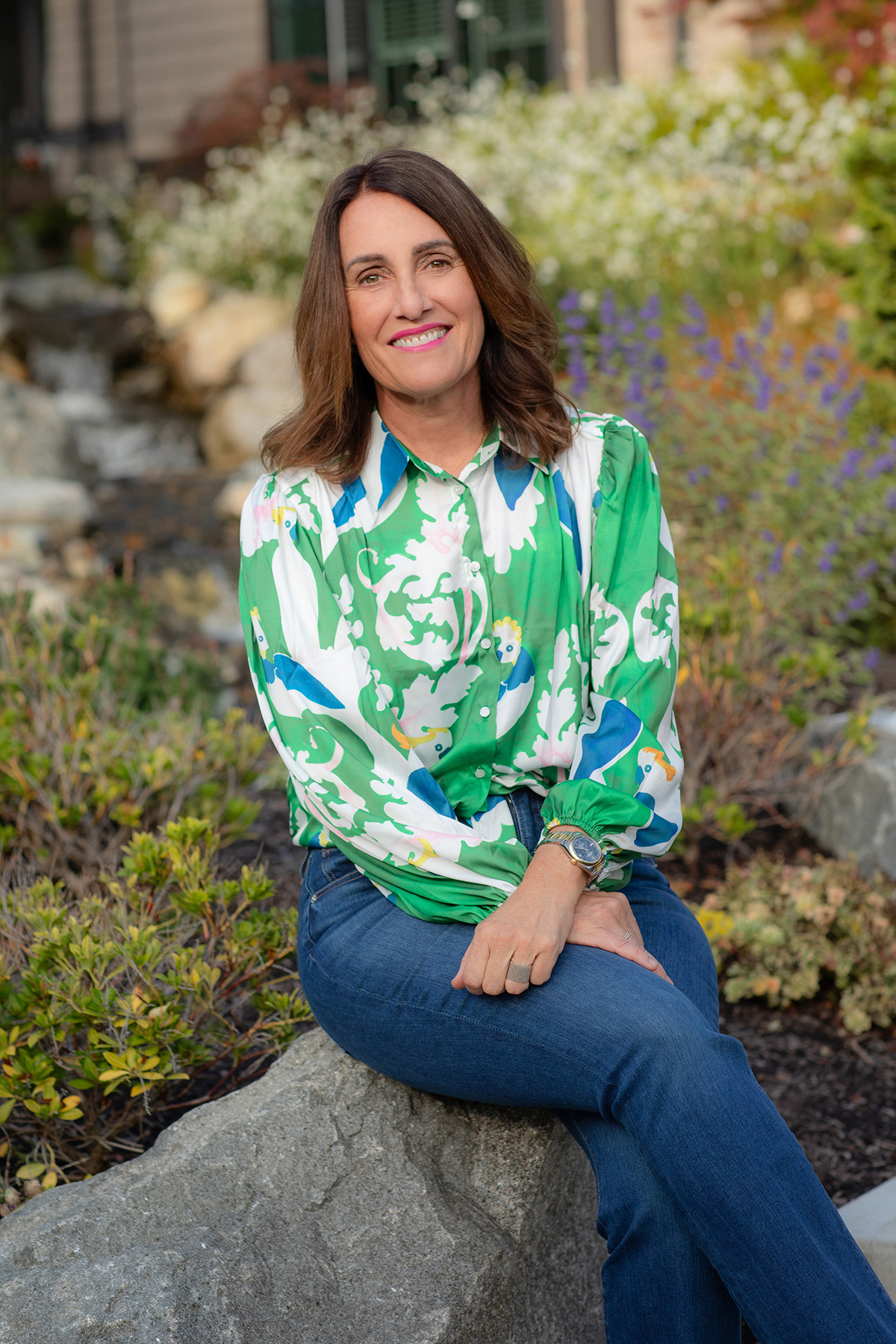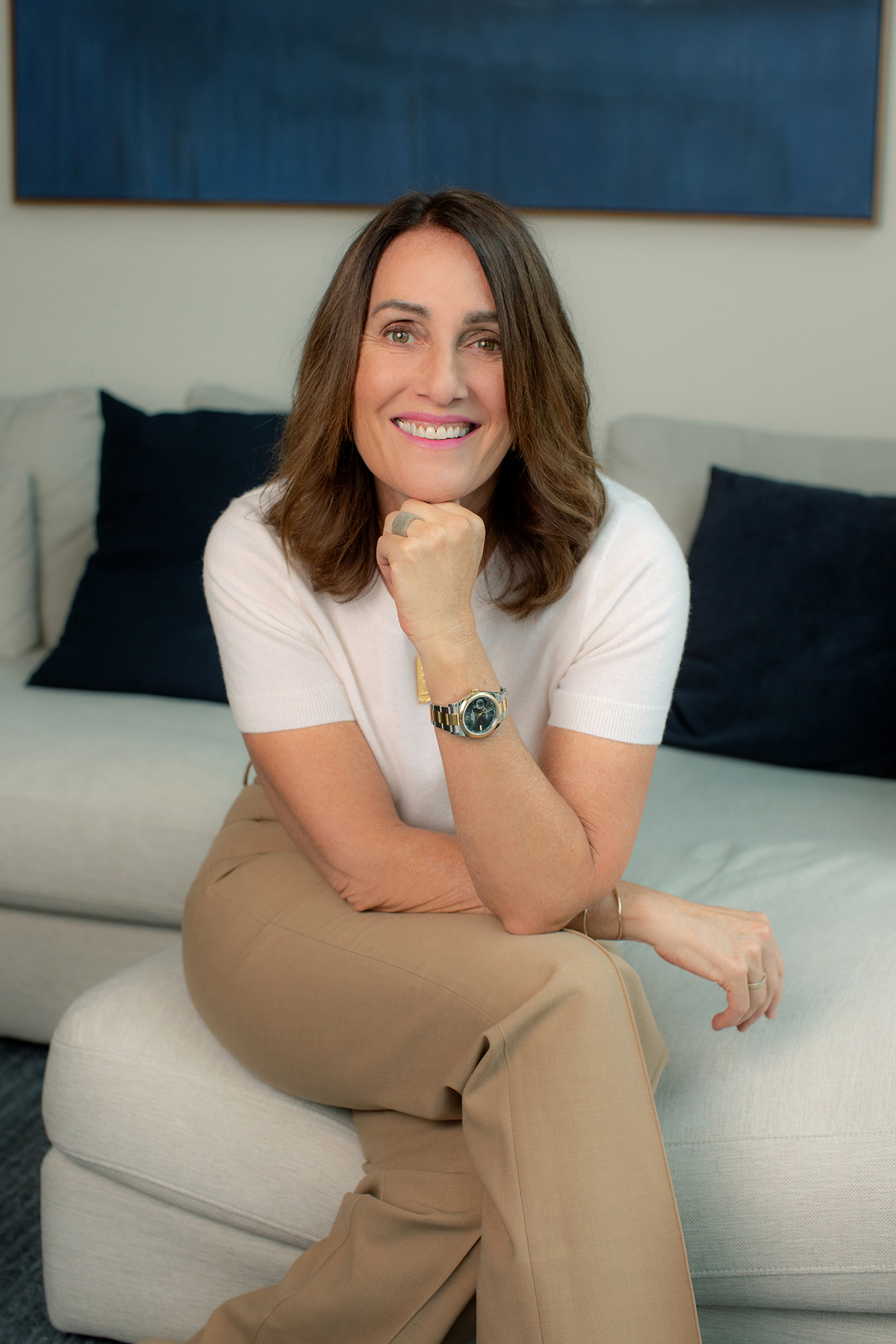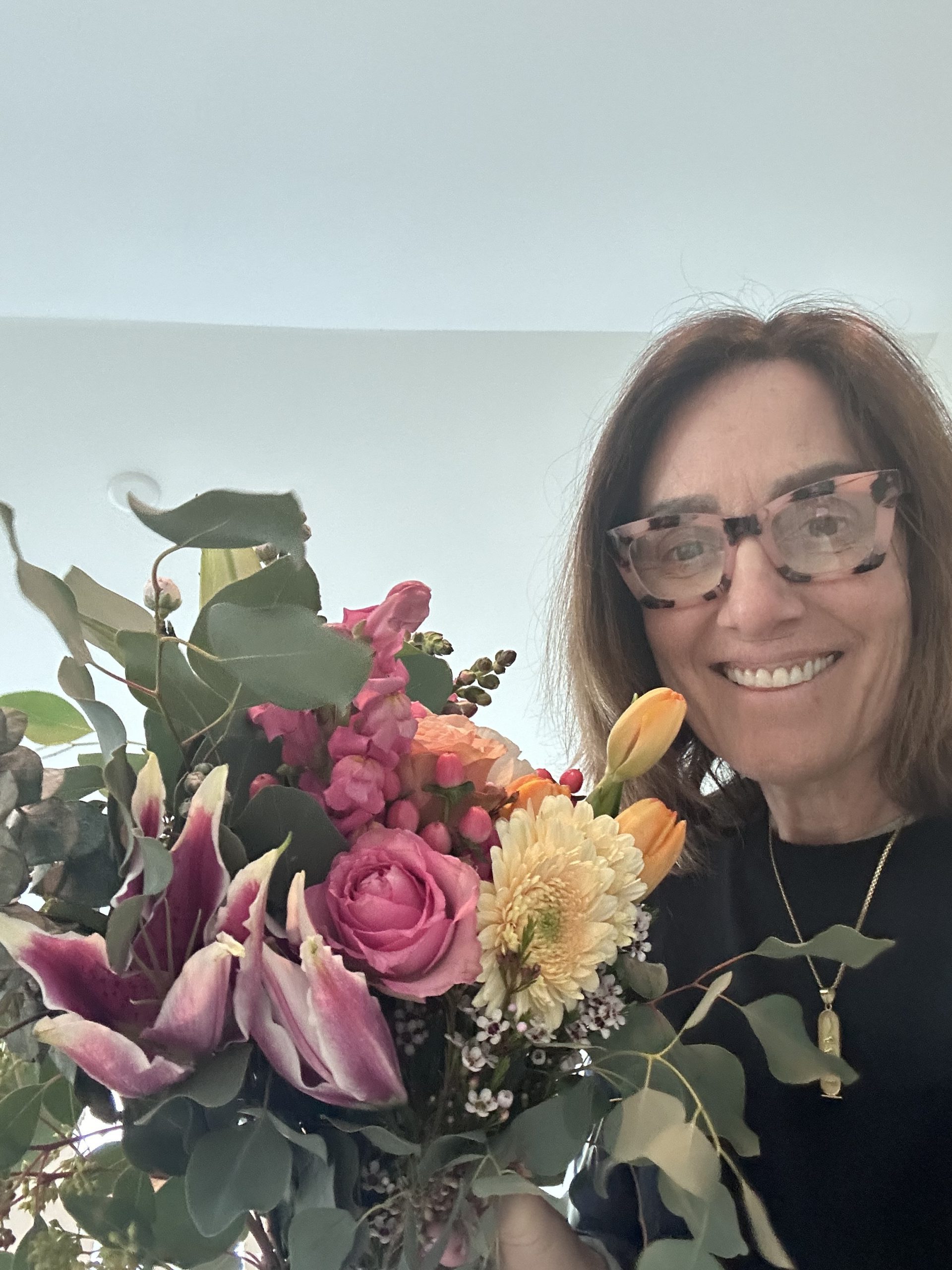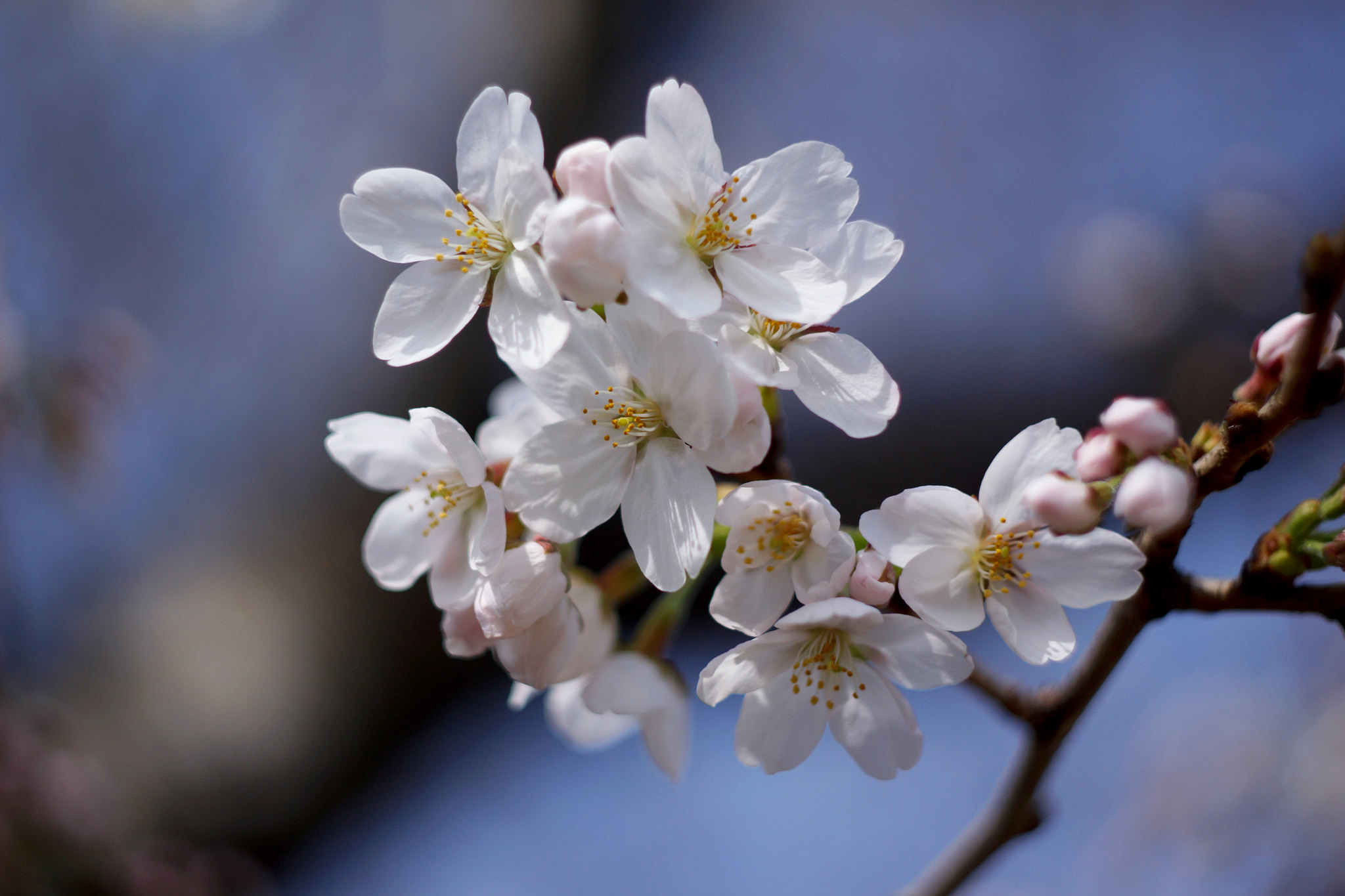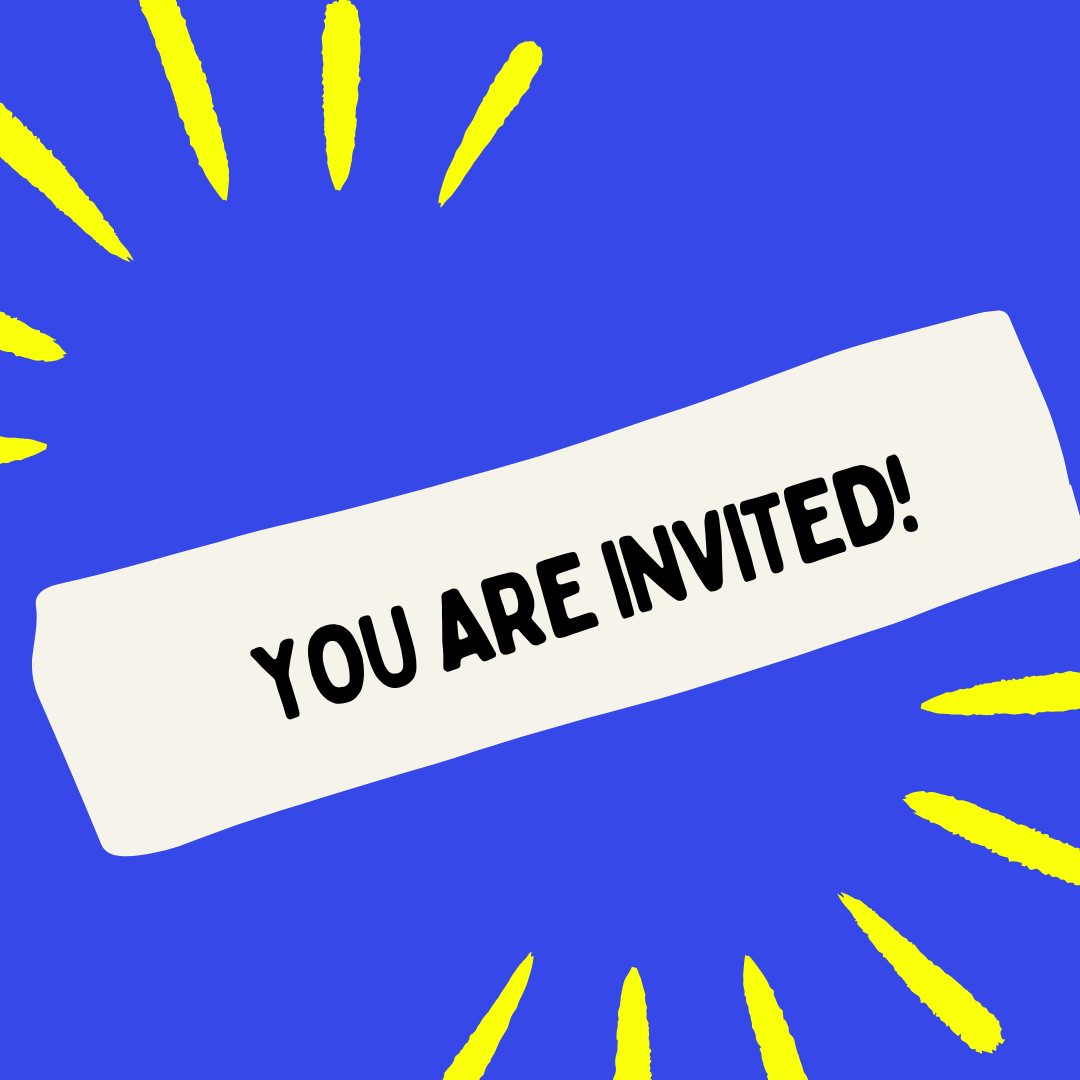Last week, I returned to the rolling hills in California after six years away. This time, I’m north of the Bay instead of east. As I began my hike up the local mountain, my heart swelled walking amongst the majestic live and blue oaks on the first ascent.
Trees have been a constant companion during the biggest changes in my life.They are the first thing I notice when I go somewhere new. I think we can all relate to trees – their sturdiness, the protection they offer, their beauty and remarkable resilience. They are masters of the death and rebirth process. They connect down through the earth and stretch up toward the sky depicting grounding and inspiration all at once.
Like many people in their mid-50s, I have a number of life transitions under my belt. Trees have supported me through them all. I moved 2,000 miles across the United States in my late twenties, switched careers, married, became a mom, moved to Europe, returned to the US via the Pacific Northwest, divorced, and now, find myself amongst these majestic California Oaks again.
The oak, cypress, eucalyptus, olive and chestnut trees supported me when I was at a crossroads in my life and walked Spain’s Camino de Santiago de Compestella to signify my career change. The eucalyptus trees in Tilden Regional Park in Berkeley were a godsend when I was in graduate school and the program required a lot of T-groups and family systems theory. Nothing like the smell of eucalplytus to help you through individuation. Further east, the Pleasanton Ridge offered me a place of refuge from the demands of raising children and being a working mom. Not to mention the countless walk-and-talks I had with friends amongst the bay laurels and oaks.
The conifers in the local forests 10 miles outside Zürich near our home and the mountain and spruce pines in the Alps were comforting as I processed and grieved the changing of my marriage. They provided protection from the literal and metaphorical elements – escaping the sun on hot days and also a place for me to scream alone when I was frustrated and confused.
The red cedars and big leaf maples on the little Island we moved to in the Pacific Northwest to help our sons transition back to the USA are ubiquitous. It’s an island full of trees and I struggled with their density — looking for the crack that would let the light in.
Sometimes, the healthiest thing you can do is let go and find new trees. It takes boldness to release that which no longer expresses the highest version of who you are and it takes courage to find new trees to support you in who you are becoming. May we all find new trees when we need them.
Love and light,
Ellen
Like most of us in middle age and beyond, I believe I am much younger than my age. This fallacy reveals itself when I see or read about someone who is my age and I am certain that the person is older than me. It’s not about who looks older (or younger) rather, the way I perceive myself versus the reality. Much of my perception is based on my sense of humor, which is still quite sophomoric. In addition, since youth, I have possessed a view that my whole life is in front of me teeming with possibility! This orientation most likely causes me to lose track of time.
I may not recognize how old I really am, but I do recognize my wisdom. We all know that wisdom and age don’t necessarily correlate. I know plenty of wise young people. I was not one of them. My wisdom is hard won. Through all the ups and downs of life, I have earned my trust in myself by reflecting on my choices, examining my virtues, and trying to be intentional with what I have learned.
With the start of this new year and all its possibilities, the wise woman I am knows that I don’t have to control situations and events to achieve my goals. Instead, I choose to trust the Universe to show me the way at the right time. Trusting timing by not creating a forced event to give the illusion of control conserves my energy. It’s also a sign of strength because it’s really hard. Wise me has finally gotten the knack. Plant the seeds, sister, do your life, they’ll sprout when they are ready.
The wise woman I am knows how to use energy. Feminine energy is receptive and reflective which is very useful when I may not be able to see exactly where I am headed. I navigate unsure waters knowing that a beautiful horizon awaits. I am a powerful co-creator of this Universe and when the time is right, I invoke masculine energy and take action with determination and focus.
Wise women like me know that we can rest. I don’t always have to be producing something or helping someone to be of value. I am valuable when I make the choice to do nothing. Busy no longer comforts the ego – I’ve worked with it enough to know when to bring it to the fore. As a wise woman, I trust that all my needs will be met because I won’t accept any less.
This wise woman knows that the women who came before are to be revered because they paved the steep and formidable path up the mountain so the women after them could reach higher heights. As I climb, often two steps forward and one step back, I take the lessons I have learned and release their stories. They have no hold. We wise women know this.
It’s no wonder I don’t feel my age. I’m in a sisterhood of young at heart, fearless comfort zone breakers, discerning big-love givers, and never-giver-uppers. No number can capture that. Blessed be for all that we wise women know.
I appreciate it when an online article title captures my curiosity. I am less enthusiastic when I have to sift through a lot of content to sate my curiosity. So, if the title, “Do we really have a life purpose?” piqued your interest…
The short answer is Yes, we really do have a life purpose.
First, we need a common understanding of the term, life purpose. Many people think that life purpose means a single vocation or avocation that we are supposed to discover, pursue, and then actively perform throughout our life. I’ll never forget when I learned that hockey legend Wayne Gretzky knew he wanted to be a hockey player at age six! Lucky Wayne! Purpose in action is different from life’s purpose. I wonder if Gretzky would count hockey as his life purpose, my sense is he would have more to add.
To understand what life purpose is, we must acknowledge this fundamental truth – we are souls who have taken human form. Our soul is imprinted with our purpose for this lifetime. When our soul takes the physical form, it brings the contract made with God, the Universe, or the Divine. The concept of soul or spirit has been part of human society throughout antiquity. The Bible is replete with references to the soul; depicted as inside the body and holds our god-given purpose. Hinduism says that the soul animates the body and is not separate – it’s the driving force within us. Both resonate with me.
Today, most of us know we have a soul or spirit. As humans have evolved, we have transitioned out of survival mode and are blessed with being alive at a time when the collective consciousness has risen. As we evolve as a species, so has our collective consciousness. There are many examples of how we have risen in our collective consciousness. Most people today understand that we are connected to all things – animals and nature are the easiest examples. Anyone who is lucky enough to have a dog or cat knows that we are deeply connected to them. We don’t own them, they aren’t our babies – they are our spiritual companions. Animals have soul contracts, too. They come into our life to teach us unconditional love, compassion, play and countless other lessons.
Science has also helped us understand how soul contracts are formed. Today, Near Death Experiences (NDEs) are rigorously studied at prestigious universities. There are detailed cases of the soul contracting process in NDEs. For many humans, seeing is believing and this helps shift our openness to new beliefs and awareness. These are just a few examples of how the collective consciousness has risen and its impact on our awareness of the nature of our soul.
The most compelling evidence is…
Perhaps the most compelling evidence we know that we have a soul that holds our purpose is we can feel it. It’s almost indescribable when we have these energetic pulls toward something, someone, or some insight. Joseph Campbell called it our bliss and advised us to follow it. We don’t know where these pulls are going to lead but we feel compelled to heed. When my good friend Terri McGuire shared her life purpose story of helping children, she called these pulls “soul whispers”. What a beautiful image!
Our soul whispers and our ego roars!
Where humans get confused regarding life purpose is in the process of being human! This is the fundamental challenge when spirit is in human form. Our soul whispers and our ego roars! The ego wants us to have a set belief system, an identity, keep us safe and always have a plan. So, we try to make life’s purpose become a thing to achieve outside of us. A mountain to climb, a job to succeed in, an identity to embrace. When life’s purpose is so much more than that – it’s the daily acts of love for ourselves by listening to the whispers and following them. One wise woman told me that she had an accident as a child and was not able to participate in sport, and she knew that part of her purpose was to help her father grow in his compassion for others. He was a man whose ego strongly identified with physical strength and performance. She recounted other areas she reflected on her life where she knew she was doing what she came here to do. Simple acts like being a pillar in her small community and being connected to the earth through her lush garden. We turn these whispers into jobs or identities we must complete to be fulfilled. When you are listening to the whispers they tell you the next step and it may manifest into a job, career or status that society approves, but that is not the ultimate goal.
Our soul carries the light, the goodness that we contracted to see out in this lifetime. We must quiet ourselves and listen with no expectations. It’s not easy, because that is the human experience – the paradox of getting out of our own way, really, our own head, to return home to what has been within us the entire time.
I look at life in terms of energy. Einstein said, that “Everything is energy and that’s all there is to it”. Have you ever walked into a room where there are people in it but no one is speaking and felt tension? You don’t know what was said, or what happened, but you can just “feel” the anger. That’s energy. Words have energy and even unexpressed emotions do, too. The energy from the argument vibrates into the room.
Everything in Life is Vibration
Albert Einstein
Einstein stated a vibration or frequency is accompanied with all energy. Everything in the universe has a set frequency point and vibrates at a certain level. The energetic waves of a church bell ringing can vibrate throughout our entire body, the excitement and love at a child’s birthday party can be felt in our heart.
American politics today is at a low frequency point. Low frequencies are things like arguing, jealousy, hatred, judging, unkindness, complaining, righteousness, and win/lose mindsets. High frequency vibrations are things like classical music (it’s been proven), love, gratitude, joy, kindness, creativity, and helping others. It’s hard to imagine a child’s birthday party with a low frequency, isn’t it? There are countless examples of vibrational frequencies in the universe because it’s all energy.
As humans, we are drawn to the frequencies that match our own vibration. Observe the frequency that surrounds you. Challenge yourself to raise your frequency. Figure out where you bring light into the world, participate in those activities, make those choices and your energy will be matched. Steer clear of low vibrational activities like baiting people on social media with your political views, putting others down because your God is the most righteous, believing that your beliefs are superior to others. Use your energy for high vibrational activities – helping others, helping the earth, enjoying nature, yoga, meditating, doing work in the world that is inclusive and generative. Food and news have vibrational energies, too. Choose wisely!
When I sit in sessions with my clients, I am listening and feeling the energy behind what they are saying. Looking for the places where they light up and noticing where they are zapped and drained. I help guide people to their light and higher frequencies. I am constantly inspired by what my clients create in terms of high frequency – yes, even in the corporate world. Their high vibration is palpable when they are solving problems with creative solutions, building new things, and helping people grow. All activities that LIFT UP – raise the vibration. What drains them is the politics – the power struggles, the blame shifting – all the low vibe activities that keep people stuck. No news there.
Match the frequency of the reality you want and you cannot help but get that reality.
Darryl Anka
If you stop participating in low frequency activities you will notice that your life will change. You need not hold shame for the times in the past that you have not made good decisions with how you used your energy — shame is low energy. We are all human – and when we know better we do better.
What is better? To me, it is the commitment to being the highest version of yourself and that version will inevitably be someone who leads a life full of high frequency activities. This is the way forward – one higher vibration at a time.
I was reminded of my promise on this blog to share my personal experiences with change and challenge by two friends who are each going through a life crisis. One has significant career strife and the other, a family health crisis. My empathy for my sweet friends runs deep because I can relate.
The good news is that there are strategies to thrive during a life crisis. Some may recoil at the term crisis. I define crisis as a life event that is emotionally painful, requires extra energy to process, involves change, and the outcome is highly uncertain. Feel free to use other synonyms such as setback, hard-times, difficulty, unraveling, or hardship, but most of us have had something in our life that resembles a crisis.
When my marriage was unraveling while living abroad it took some time to realize that I was in a crisis. Much like my friend who is having career challenges – there was a high degree of uncertainty and stress. In my friend’s situation, her company was bought out and it became clear as things unfolded, the new role was not a fit. This is often the way challenges in life emerge – with an unfolding. A speed bump becomes more than a speed bump. Other times, like my friend who is experiencing a family health crisis – crises can happen quickly. No matter how the crisis enters our lives, at some point, we need to make a choice on how we want to approach the situation.
One of my favorite contemporary Buddhist teachers, poses this powerful question.
“Can we cultivate openness big enough to hold our pain and not collapse into it?”
Sharon salzberg
Often during challenging times, we merge with our pain and it consumes us. I did that for a spell. It’s a big cup of no fun. While it’s important to sit with all emotions (good and bad) – to let them consume us creates chaos. So, I chose to step back and use the witness technique. The witness technique is simply witnessing yourself in a situation – your thoughts, reactions, emotions, and impulses. The best book I have ever read about this practice is Michael A. Singer’s, “Untethered Soul.”
When I began to objectively witness myself throughout the day – it created enough space to separate myself from those tough moments. This trying time was happening to me, yes, but the objectivity of watching myself in it created enough space for me to recognize that I was much more than the crisis. I want to differentiate the witness technique from a bypass. A bypass is ignoring what is going on in our lives and by over-focusing on something else. We can do this with meditation, exercise, or work – all healthy and seemingly productive choices but not so if they are diverting us from reality. The witness technique allows for a both/and perspective. In my case, I was BOTH in pain AND had joy in my life. My marriage was not okay; but I was. I had two healthy delightful children I loved to spend time with and a beautiful new country and her people to explore. This is what creating space means. Space allows a broader perspective. This practice and approach can help during any difficult time in your life.
A benefit to consciously choosing to be a witness in our own process is that it allows us to stay in our power and make intentional choices. This broader perspective or space, allowed me to make decisions from a place of strength and clarity.
What I have just described is foundational. The practice of being the witness to your life opens the door to positive choices to help navigate a tough time. In fact, these choices are good for everyday life, not just during difficulties.
- Take a walk outside. I spend time in nature every day. I have never returned from a walk or a hike in a bad mood – my energy has always shifted to the positive. Nature is a natural regulator for our nervous system.
- Take a walk with a dog. Dogs need to be walked daily and they are joyful while doing it. It’s a Win/Win.
- Take a walk with a dog and a friend. These are my people. Win/Win/Win
- Stay in the Present Moment. I diligently worked at this one. We often create pain and suffering by retelling stories in our head. When difficult conversations or events are replayed in our minds – we create suffering. When I noticed myself replaying an uncomfortable event, I acknowledged the feeling and moved my attention to the present moment. In the present moment, I was okay. Practice is key. Eckhart Tolle is the master of the present moment. His book, “The Power of Now” was transformational for me. He nails it in this quote…
“The primary cause of unhappiness is never the situation but your thoughts about it.
eckhart tolle
- Focus on Gratitude – Gratitude is the highest energetic vibration – right up there with love. So, take a few minutes every day to visualize and feel the things in your life that make your heart sing. I can close my eyes and think about my kids and immediately I feel my heart chakra open. Try it with anyone you love and put your attention on your heart. It also releases dopamine in the brain so you will feel these positive effects in multiple ways.
- Slow the Pace of Your Life – This can be difficult because cultural norms and adult responsibilities are often fixed. The pace of life in Switzerland is slower than the United States. The Swiss work very hard, but they also take periodic breaks and rest. I reduced my work to part-time while abroad to help the kids and family become acclimated to a new school, language, and country. Slowing my life allowed me to fully implement all the tools and practices I use with my coaching clients. So, look for ways to slow your life down when going through a tough time or making any changes. You’ll be better for it.
I hope this framework of being your own witness and practicing mindfulness is helpful. In addition to what I have presented here, you can also work with a qualified professional to support you during a challenging time. My intention here is put forth solutions that we can do on our own that also have a positive impact in our daily lives crisis or not.
If you are going through a challenging time, know you are not alone, and you will get through it. Find the fortitude to make the choice to allow the adversity to shape you — not own you.
He says the best way out is always through.
And I agree to that, or in so far
As I can see no way out but through.
Robert Frost
When I am my own best friend…
There are no bad hair days. The curls of my bed head fall just so. My outfits get a twirl in the mirror and wink of appreciation for my personal expression of style.
“Girl! Come on! I am so AH-MAY-ZING!” I say to myself.
I laugh at my jokes and witty humor. “That’s so silly! I love it!”, I guffaw. I create joy like a little fairy flitting over her precious garden. Just like Miley, I buy myself flowers. I put them in my favorite vase made by one of my favorite friends.
There is no one more kind and understanding than myself when I forget something at home and have to turn back to retrieve it.
People as awesome as me forget things sometimes.
I witness my generosity and kindness to others and beam with pride for my big heart. The hope l feel for the world and her people is a marvel. “We are all connected and can do this together!” I exclaim. I inspire myself with creative ideas, “ I mean, “Wow! WHO thinks of this stuff?”, and then flash my killer smile and flip my luscious hair.
“I do!”, I reply.
I am proud of my work ethic and integrity. My sharp mind can navigate vexing business challenges with the grace of a karate master. I only do for others when I can – not when I should. I make sure my needs are met and forgo obligation only helping with the fullest heart.
I have one glass of wine when dinner calls for it – not two. My body knows that in my 55th year, a second glass brings a headache. After long days when I’m weary, I pass on fast prepared food and cook a simple meal. Ah, just what these gorgeous curves deserve.
I respect myself and don’t second guess my decisions. I inquire, “Does this fill my cup? Is this what my heart wants?”. Life is too short not to listen to my sage advice.
My best friend skills are in the same league as Samwise Gangees from the Shire, Russell the best Junior Wilderness Explorer ever, Judy, Violet, and Doralee (aka Jane, Lily, and Dolly) and my dog Chester all wrapped into one human form that is me, myself and I.
Aren’t we all fantastic?
I spend time with those who feed my soul. In the evening, I set out for a stroll to visit my friend, Water. She calms my senses with the rhythmic sound of her waves washing ashore. On the way home, I opt for the path through the forest to see my friend, Tree. I tell them both how grateful I am to have them in my life. Friends should know how much you love them.
I love my best friend.
Hi Everyone!
I appreciated all of your insights on my personal power writing last month. I love to learn from others’ life experiences. Life is so rich when we share our insights with one another.
As I continue on my journey to create this current version of myself, I am struck by how important it is that we help one another with what we have learned along the way.
Joseph Campbell, the American writer and professor who studied myths throughout time, coined the term the monomyth. It means there is one narrative within every story throughout all civilizations. Campbell studied thousands of myths and legends to discover that there is a central hero in each adventure who follows a familiar pattern. From Jesus, to Persephone, to Luke Skywalker, we are all the heroes of our own life.
When we think of our life as an adventure and ourselves as the hero in it, it shifts our perspective and creates a sense of wonder. It also gives us permission to follow our instincts and take risks. It is true that we all have responsibilities and cannot take off to sail around the world at a moment’s notice – or can we? We can say YES to more than we think we can. If we have the goal of becoming the best versions of ourselves, we can be adventurers – even without a big life transition to navigate.
As the heroes of our own life, we do not give up or regress when faced with adversity. Instead, we face the challenge, overcome and learn from it. When we expect more for ourselves and from ourselves it takes us out of our comfort zone. The comfort zone is our ego’s domain. Whereas our soul is always calling upon us to grow. The hero’s journey can take place on a battlefield or in an office cubicle. Becoming a parent is an example of a journey. It’s such an important role, and, after time, the demands of that role wane and we need to embark on a new path.
I mentioned at the beginning of this piece that it is important to help one another. In the third stage of Campbell’s monomyth, the hero returns from her journey she must share what she has learned with her community. This is what elders do. In today’s society, we need more elders. In civilizations throughout time, the wise elder played an important role as the custodians and holders of sacred knowledge. They helped others by guiding and bridging the past, present and future. We all have access to our inner elder regardless of age. Michael Meade calls the first half of life, “Survival Mode” and says that we must take what we learned in survival mode and teach others. If we have learned important life lessons or have specific skills that we are passionate about – we must pass them along. We must not choose idleness.
I have learned so many things about how to take care of myself during a challenging time. How to let adversity shape me, but not own me. I look forward to sharing so much more. I invite you all to to say “yes” to more journeys and to help others with what you have learned. Until next time!
Learn to get in touch with the silence within yourself, and know that everything in life has purpose. There are no mistakes, no coincidences, all events are blessings given to us to learn from.
— Elizabeth Kübler-Ross
Blessings and light,
Ellen
Hello Everyone!
Happy Spring! I was humbled by the responses I received from my last writing. It was a good reminder of how much community I have in my life – it just takes reaching out!
I love the vernal equinox – there are signs of life emerging from birds singing to shrubs and trees budding. As nature undergoes one of her biggest transformations, I have been thinking about the concept of personal power which is vital during times of transformation. It’s a term that we’ve all likely heard. Albeit an abstract one. If I asked a group of people what personal power means, there would be multiple definitions. Power is such a meta term, isn’t it? Everywhere and in everything.
My definition of personal power has formed over time through a lot of personal trial and error. I’m going to differentiate some common ways I think about personal power to get started because the topic of power is so interwoven into life. Personal power differs from external power. External power is found outside of us — in the collective within societal systems and structures. Examples of external power are patriarchies, religion, wealth, the rule of law, and in the USA in particular, the gun lobby and celebrity. These systems and groups of people in the environment have enough power to make what they want happen at a large scale. Usually, it’s ego driven or not a power that is connected to the greater good or even the heart for that matter.
There’s personal power in the workplace. The expert has personal power. As does the influencer who has referent power due to sharp interpersonal skills. Those are useful types of power that can be learned. I’m talking about our inner personal power. Something we all have and just need to pay attention to…
Inner personal power is individual and pure. It’s something we all have and it comes from within. Inner personal power in action is our agency and advocacy for Self, with a capital “S”. Personal inner power is also a stance: I am myself without compromise.
Personal inner power is also a stance: I am myself without compromise.
One way is when we follow our inner knowing or intuition. Einstein called intuition sacred and said it was our 6th sense. Steve Jobs said intuition was a higher form of intelligence – higher than intellect. Both of these smart dudes got it right! It has been proven that there is no rational thought when using our intuition. There is no mental process. It comes from your gut and is instantaneous – often described as felt sense. The source of intuition is beautiful and unique to each of us because it comes from our spirit or soul. When we act upon our intuition, we are using our personal power. Intuition can be something as simple as the flash of an idea to add a different spice to a dish that is not in the recipe and it turns out to be delicious. Intuition can tell us what not to do either – there are stories of people canceling travel due to a gut feeling and then being saved from a potential tragedy. I’m sure you all have your own stories of when you used your gift of intuition.
There are two ways we use our inner personal power. One is intuition and the other is instinct.
There is another way we use our inner personal power. It’s when we use our instincts (a mental function) to make a decision or choice. Often with instincts we are quickly relying on data to make decisions. Humans make an average of 35,000 decisions a day. Many of these are quick instinctual decisions that require some brain function, but not a whole lot. Like what we want to eat for dinner or whether or what program we stream. When we stick with our initial instinct or what we know is right for us, we are in our personal power. I’ll give an example of inner personal power that a friend recently shared with me. (Name changed to protect the innocent.)
“Carol” recently celebrated her birthday which fell mid-week. She had various plans throughout the weekend to celebrate with family and friends. But, Carol’s mother didn’t want to wait. She wanted to see Carol on Carol’s birthday! So she asked Carol to take her to church on the morning of her birthday. This would require Carol to get up very early to pick up her mom, take her to church, drop her off and then get herself to work before 8:30am – all on her birthday! Carol said her first response was “Heck no. I don’t want to do that!” Then, as Carol retold me the story, she shared her line of reasoning on the journey from knowing her answer was no to sitting in church with her mom. Keep in mind, while she was telling me the story, I was listening to Carol’s certainty of how she didn’t want to take her mom but then how she talked herself out of doing what she wanted to do – and on her birthday no less! She said things like, I was annoyed because I knew my mom was trying to guilt me into getting her way to see me on my birthday. But, then I felt guilty for thinking that and I realized my Mom is just trying to help me be a good Christian. It went on and on until finally I said, “Did you do anything you wanted to do on your birthday? And, she laughed and winced simultaneously and replied, “As a matter of fact, I didn’t.”
Carol’s example is one of not using our inner personal power. She knew what she wanted to do, but she talked herself out of it. I know I have been in Carol’s shoes before. I have found when I second guess myself by either not following my intuition or listening to my instinct, I am squandering my inner personal power.
The consequences of doing so are steep. When we give away our personal power, we begin to lose our connection to ourselves. If we allow this to happen repeatedly, our intuitive voice begins to dim and the clarity of our instinct becomes muted. We begin to live in a state where we don’t really know what we want because we no longer listening to our own answers and ultimately, ourselves.
In periods of transition, it can be scary because often we do not know what the outcome will be. We may have a plan, but plans need to be flexible. The very nature of change is that we are embracing something new – venturing into the lush forest of the unknown.
Intuition and instinct both come rather quickly. If you find yourself hemming and hawing and then talking yourself out of what you want – ask yourself, am I trying to please others? What is it I truly want? Why am I trying to convince myself otherwise? Begin to notice as you go through your day how you use your inner power or give it away. Lean on someone you really trust and ask them to listen to your process as you make some of these choices in your change. Ask them if they can hear you talking yourself out of what you really want or coming from a place of fear and allowing that fear to drive your decision. You got this.
Be yourself – without compromise!
Blessings and Light,
Ellen
It’s been awhile since I have reached out. It’s been a busy time resettling in the USA after over four years in Europe. It has been a true homecoming to be reunited with people I love.
A YEAR OF BIG CHANGE
2024 is a year of big change. I am returning to full-time work in my field of Organization Development. I have been consulting and coaching to organizations for for almost twenty years and genuinely love working with people and systems to help them reach their full potential. I am grateful for my work and the outstanding leaders I work with.
My biggest creative project for the year will be taking steps to design a new life for myself. After 17 years of marriage, my husband and I will separate and focus on co-parenting our boys. A lot of time and effort has been put into this big decision. I am sincerely grateful for all the beauty that we have created together. I am also excited to create something new for myself while still giving my all to my most important roles — Mom and Working Professional.
TRANSITIONS
Transitions can be planned or forced upon us. And, while each transition is unique to the individual and the circumstances of their life, there are guiding principles, habits, and perspectives that are helpful to navigating them. Given my propensity for change and commitment to personal growth – I’m no stranger to these liminal spaces. I will be learning as I go as well as drawing upon the inner-wealth I have cultivated.
I considered hunkering down through this rebirth process to produce something to help others on their journey when I came out the other side of mine. But, that felt hermetic and too safe. Instead, I will share as I move through the process to create what I want for myself, at this stage of my life, real-time – while it’s happening.
AN INVITATION
Whether you are going through the process of ending a relationship or a job, or perhaps your children are off to college and beyond, or you are wondering what’s next and you want to pursue a life that has more joy and less fear – whatever transition you are stepping into – I invite you to join me on my journey as you travel along yours.
If you do join me, and I hope you do, here are some clarifications to be helpful.
- Options to follow along: I’ll send emails via my email list (this is how this email got to you) and also post on my Instagram a link to my website where my short essays will reside. I ask that you share this email with anyone you think would benefit.
- Sporadic and few emails: The frequency of the emails will be few and sporadic. When I want to share, I will. Today, when I join newsletters of people who interest or inspire me, I almost as quickly unsubscribe because the volume of emails is too much for me to absorb. I won’t flood your Inbox.
- What I won’t share: It’s human nature to be curious about what happens to others’ relationships when they end. I won’t share those details out of respect for our family.
- What I will share: My essays will include personal and practical information that will have universal underpinnings we can all relate to. Examples could be:
- How we can all partner with a loving universe to co-create from our heart not our fears
- Insights about relationships and their constant cycle of death and rebirth including the relationship we have with Self
- How acceptance is courageous and can yield peace and possibility
- How to use the symbols and archetypes in our everyday life to transcend challenges and align with our soul’s purpose
- My Hope: Is that through sharing my experiences in creating what I want for myself in this next chapter, that there is something ignited, reflected, touched within you that helps you on your journey.
I’ll leave you with one of my favorite quotes about change.
It’s not so much that we’re afraid of change, or so in love with the old ways, but it’s that place in between we fear…it’s like being in between trapezes.
M. Ferguson
I look forward to you joining me on the trapeze!
Blessings and light,
Ellen
You offer young and old a welcoming spot to sit. Your long back provides space for food and drink to be feasted upon. A perpetual invitation to make memories, center routines, birth conversations, hold hands, and celebrate life. You ask us to come prepared, timely, and ready to partake in grace, community, and presence. For some, you invite to not only play, but to do the work of life.
If you are set and ready to receive but someone does not arrive. Naturally, you wait. Who could forsake the gifts that you offer? Surely they are remiss. You remind them of the beauty and promise you hold. Yet, they still do not come. After awhile, their cutlery and placemat journey back to their respective drawers, and the napkin, with all its utility, travels to the neighboring seat, to serve those who choose to participate.

